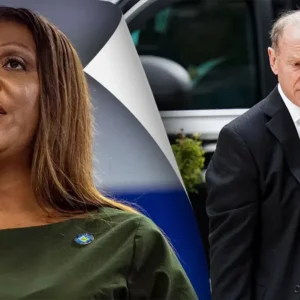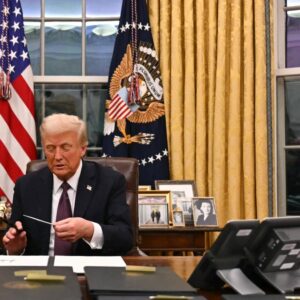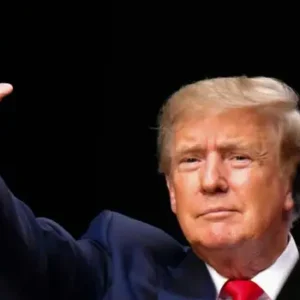
Judge Indira Talwani’s Ruling on Immigration Parole Program Draws Scrutiny Over Political Ties and Controversial Background
In April 2025, U.S. District Judge Indira Talwani issued a significant ruling that temporarily blocked the Trump administration’s plan to end humanitarian parole for over 500,000 immigrants from Cuba, Haiti, Nicaragua, and Venezuela. These individuals had entered the U.S. under Biden-era policies allowing two-year permits with work authorization. The administration’s decision to revoke these protections, scheduled for April 24, 2025, was criticized by Judge Talwani for an “incorrect reading of the law” and a lack of reasoned decision-making, characterizing it as a breach of an existing agreement
Background of the Humanitarian Parole Program
The humanitarian parole program was introduced during the Biden administration to provide temporary legal status and work authorization to individuals from countries experiencing political instability or humanitarian crises. Beneficiaries of this program were granted two-year permits, allowing them to live and work in the U.S. legally. The Trump administration’s attempt to terminate this program affected individuals who had complied with legal requirements and contributed to the U.S. economy through work and taxes.
Judge Talwani’s Ruling and Its Implications
Judge Talwani’s decision to block the termination of the humanitarian parole program was hailed by immigrant rights advocates as a victory for the rule of law. The ruling emphasized the importance of adhering to existing agreements and ensuring that decisions impacting individuals’ lives are made based on sound legal reasoning. By halting the revocation of parole, the judge provided temporary relief to hundreds of thousands of immigrants facing uncertainty and potential deportation.
Criticisms and Allegations of Political Bias
Despite the legal basis for her decision, Judge Talwani’s ruling has drawn criticism from certain political circles. Some opponents argue that her actions reflect a judicial overreach and an alignment with progressive immigration policies. These critics suggest that Judge Talwani’s personal political views may have influenced her decision-making process, raising questions about the impartiality of the judiciary in politically charged cases.
Judge Talwani’s Judicial Record
Judge Indira Talwani, appointed to the federal bench by President Barack Obama, has a history of rulings that favor immigrant rights. In 2019, she issued a preliminary injunction blocking U.S. Immigration and Customs Enforcement (ICE) from making civil immigration arrests inside Massachusetts courthouses. This decision was based on the argument that such arrests were disrupting the criminal justice system and deterring individuals from participating in legal proceedings .
Broader Context and Public Reaction
The controversy surrounding Judge Talwani’s ruling is part of a larger national debate over immigration policies and the role of the judiciary. Supporters of stricter immigration enforcement argue that judicial decisions should align with the government’s stance on immigration, while advocates for immigrant rights emphasize the importance of judicial independence and the protection of vulnerable populations.
Public reaction to Judge Talwani’s ruling has been polarized. Immigrant advocacy groups have praised the decision as a necessary check on executive power and a reaffirmation of the rule of law. Conversely, opponents view the ruling as an example of judicial activism that undermines the administration’s efforts to enforce immigration laws.
Conclusion
Judge Indira Talwani’s ruling to block the termination of the humanitarian parole program has sparked significant debate, highlighting the intersection of law, politics, and immigration policy. While the decision provides temporary relief to many immigrants, it also underscores the contentious nature of immigration reform in the United States. As the legal proceedings continue, the case serves as a critical point of reflection on the balance of powers and the role of the judiciary in shaping immigration policy.






